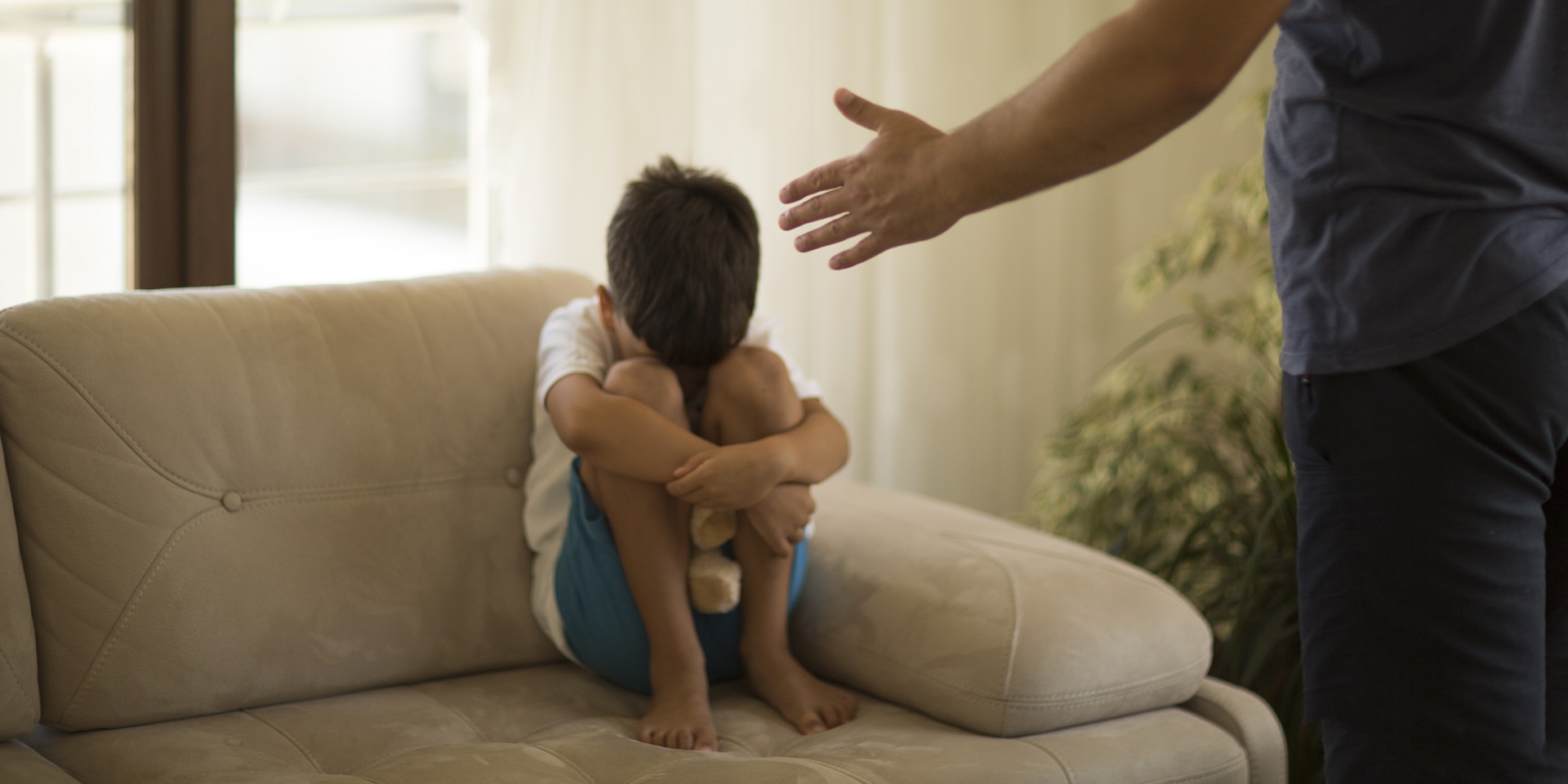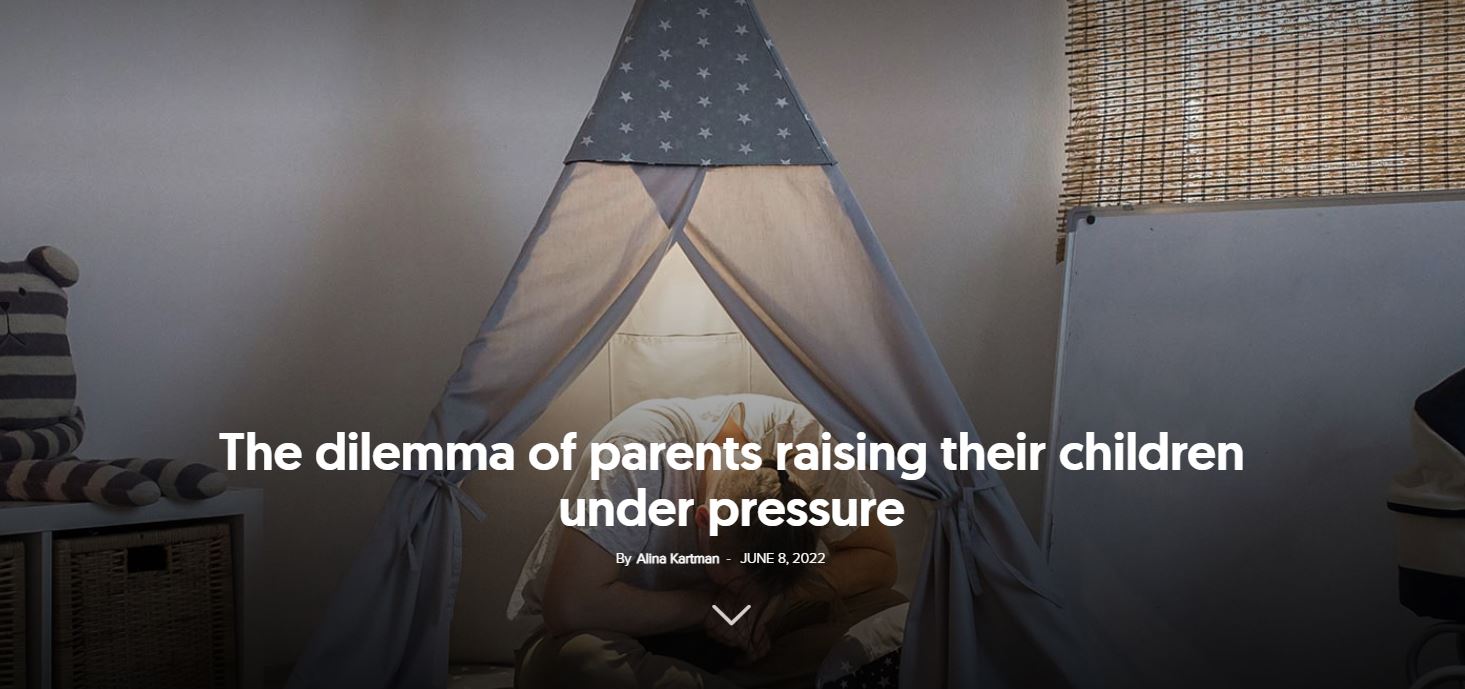He is 22 years old and has deep black eyes. He is tall and very confident. Why wouldn’t he be? He is doing satisfactorily in college, works to support himself and makes the most of his free time with his friends.
A few hundred miles away, he also has a beautiful family—his parents and two younger brothers. He stopped contacting them in his first year of college, and his parents don’t even know his phone number. If you ask him why, he lists with a frown all the meaningless rules imposed by his “folks” that have darkened his life and tells you of beatings he got from them, even in public, until almost adulthood.
At home, his “folks” fret. How is he doing? After all, they did everything they knew best… He’s an adult now, he has to understand by now: that’s life—a set of rules. You can’t let a child grow like a weed!
Therefore, it seems that discipline creates distances, right? After all, there are studies that show the worrying effects of parental discipline based on excessive control. Parents who set very precise rules for their children, demanding that they be obeyed without questioning, can create the conditions for distrust, isolation, and even subsequent disregard for any authority, leading to delinquency.[1] Another study, conducted by Spanish researchers, concluded that strict rules and punishments could lead to incomplete emotional development, resentment, and low self-esteem.[2]
A confusion that deepens the dilemma
Discipline is defined as the totality of behavioural rules that must be followed in a community—in this case in the family. However, although dictionaries do not list “punishment” among the meanings of the term, the association between the two is quite common; sometimes they even become synonymous.
Moreover, the non-formal perception of adolescents on the discipline administered by strict parents is described not only by listing the rules (obtaining good grades, providing help in the household, banning dating up to a certain age, observing a certain language code, mandatory presence in the house in the evening, after a certain hour, etc.), but also by mentioning the punishments they receive if they do not comply with these rules. This confusion is dangerous, because it can divert attention from the positive, shaping potential of the rule to the threat of the lurking error.
The solutions of the “Tiger Mother”
The debate over the most appropriate educational approach was intensified in early 2011 by a book authored by a Chinese mother, a Yale professor. Amy Chua outraged many American parents by briefly presenting some of the rules her daughters were required to follow (banning watching TV upon receiving any grade below an A, the requirement to practice piano/violin daily and to score first in their class for each subject, except for gymnastics and theatre, etc.), but also the extremely firm way in which she ensured they would not violate these rules.[3]
Taking into account the particular cultural aspects, she explained that her parenting strategy, as a “tiger mother”, starts from the assumption that her daughter is strong enough to overcome failure and the harsh reprimand associated with it, obtaining much more honourable results than if she would only be comforted and “forgiven” for failures.
The tiger mother even declared her willingness to become the “hated parent” if this was the controversial position she had to take in order to achieve her child’s success. At the same time, she was convinced that a child motivated in this way would finally come not only to reach the proposed goals, but also to appreciate the parent’s intentions and effort at their true value.
So, what is the “recipe”?
A typology of parenting styles would certainly place the example at the beginning of the article in the category of authoritarian parenting style, described by the existence of a strict set of rules, imposed on the child by the parent, without the possibility of negotiation by the former. An authoritarian parent will quickly resort to corporal punishment, threatening, and depriving the child of affection, as methods of obtaining the desired reaction.
The phrase “Because I said so” is symbolic for these parents, while affectionate behaviour is considered a sign of weakness and, as such, most often avoided. The complete opposite hereof is the behaviour of the permissive parent, who tolerates any reaction of their child, spoiling them, either as a show of affection, or due to their real inability to discipline them.
The “recipe” is that of the democratic parent, who sets a clear set of rules, but also accepts their child’s feedback on them. This type of parent is not afraid to express their love for the child, both in words and gestures, aware that affection plays a very important role in their child’s development. A warm atmosphere, which inspires confidence and assures the child of the unconditional love of the adults around them, will decisively contribute to shaping a strong individual, able to face the most difficult future circumstances.
At the same time, however, a certain set of rules is strictly necessary in the process of raising a child. Violation of the agreed rules does not go unpunished, but the “punishment” is not an arbitrary one, applied under the rule of anger. Open, peer-to-peer communication is the key to the family relationship.
Several TV stations around the world broadcast a reality show with a specific format: “rebellious” teenagers leave their homes to live for a short time in another country, with a “strict” family (but characterised by the democratic parental style), with the obligation to respect the rules of their new home. Taking into account the efforts at mutual adaptation and the results obtained, a quick analysis presents some key characteristics of these successful surrogate parents: the family is always together, there is an absence of abuse or shouting, there is an observance of house rules, a manifestation of love, volunteering, the existence of consequences for each act, and involvement in domestic activities.
Therefore…
… can discipline create distance in the relationship between parents and children? It certainly can! Improperly administered discipline can cause irreparable damage to both family relationships and the child’s individual development.
Can you still stay close to your children, even if you discipline them? Again, definitely yes! However, the middle way is always the hardest to follow. A child educated in an environment that is equally stable, defined by rules, as well as comfortable, “padded” with real affection, has the maximum chance of success and will most likely remain close to their family in the long run.
Moreover, it seems that the influence of a parent who wisely manages discipline goes beyond what we would imagine. For example, according to a study,[4] the combination of affection and control in the mother-child relationship not only reduces the risk of drug use for their own children, but also for the children’s close friends, thus multiplying the effect of discipline.




















